Knowledge Products
The GPSC hosts a digital library featuring practical tools, reports, and case studies. Explore curated resources across thematic areas, filtering by topic or region to find the insights required to advance urban sustainability.
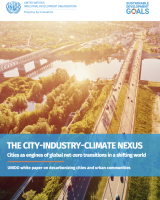
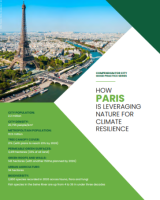
Compendium for City Good Practice Series: How Paris Is Leveraging Nature For Climate Resilience
This report, as part of the Compendium for City Good Practice series, highlights Paris's innovative approach to climate resilience through the strategic integration of nature into urban environments. It offers a comprehensive overview of Paris's strategy on urban nature, showcasing how the city is integrating biodiversity into planning, leveraging green spaces, biodiversity corridors, and sustainable landscaping to mitigate the impacts of climate change. The report serves as a valuable resource for cities worldwide seeking to emulate Paris's successful model of
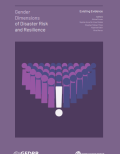
Gender Dimensions of Disaster Risk and Resilience: Existing Evidence
This report reviews existing evidence and data on how men and women, boys and girls are impacted by, prepare for
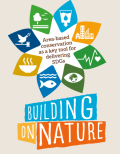
Building on nature: Area-based conservation as a key tool for delivering SDGs
This pioneering, action-oriented guidance demonstrates how the designation and effective management of protected and conserved areas can benefit sustainable development
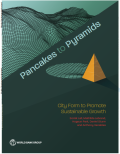
Pancakes to Pyramids: City Form to Promote Sustainable Growth
Towns and cities are economic and social microcosms in which large numbers of people and firms interact. These interactions largely
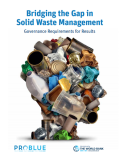
Bridging the Gap in Solid Waste Management: Governance Requirements for Results
The primary responsibility for providing on-the-ground services and for ensuring the controlled management of solid waste, on the other hand
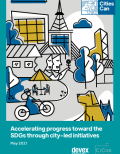
Cities Can: Accelerating Progress Toward the SDGs Through City-led Initiatives
In this report, Devex and City Cancer Challenge explore the challenges and best practices involved in implementing city-led initiatives to
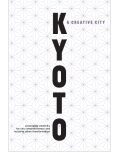
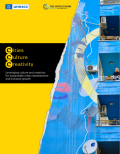
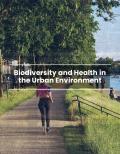
Biodiversity and Health in the Urban Environment
Biodiversity underpins urban ecosystem functions that are essential for human health and well-being. Understanding how biodiversity relates to human health
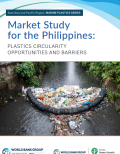
Market Study for the Philippines: Plastics Circularity Opportunities and Barriers
Mismanaged plastic waste has growing economic and environmental consequences. USD 80-120 billion worth of plastic packaging is lost from the
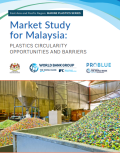
Market Study for Malaysia: Plastics Circularity Opportunities and Barriers
Plastics are an integral and important part of the global and Malaysian economy. Since the 1950’s, the use of plastic


